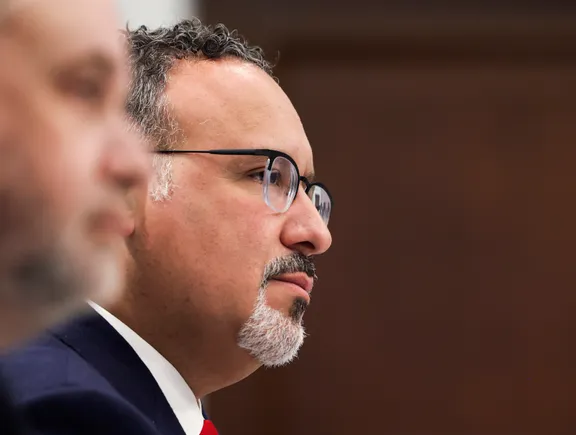Complete College America (CCA) is making the connection between the potential of student success at historically Black colleges and universities (HBCUs) and investment in cutting-edge technology.
In a newly released report, “Critical Connections: Funding HBCUs’ Digital Infrastructure is Essential to Meeting U.S. College Completion Goals,” CCA calls on state policymakers to increase investment in the digital and physical infrastructure at HBCUs.
The COVID-19 pandemic highlighted the critical need to invest in digital infrastructure, but technology was crucial in identifying and addressing student needs well before 2020. With digital learning being a front-runner in many institutions’ long-term strategy, the report advocates for funding so that HBCUs in particular can leverage technology while retaining the personalization that is central to their success. Dr. Yolanda Watson Spiva
Dr. Yolanda Watson Spiva
“Unfortunately, what we were hearing from our alliance members who were at HBCUs, and predominantly Black institutions and community colleges was that their literal functionality with hardware and software was difficult to navigate,” said Dr. Yolanda Watson Spiva, President of CCA, in an interview with Diverse. “It was not because the leaders or the practitioners or faculty members in these institutions weren’t tech savvy or didn’t care…It was about funding.”
According to research from UNCF (United Negro College Fund), HBCUs comprise 3% of the nation’s colleges and universities, but enroll 10% of all Black students and produce almost 20% of all Black graduates in the United States, as mentioned in CCA’s report.
“HBCUs have been the leaders in ensuring on-time [college] completion of Black and brown students for centuries, so enabling them with tech resources will only enhance and exponentially increase those capabilities,” said Watson Spiva. “We’re not asking for investment to take place in our pilot…this is about demonstrated competencies that have been there for years, decades, and centuries.”
The report also noted the emergence of artificial intelligence (AI) and its potential influence on higher education services. CCA believes that well-funded institutions can accelerate with new resources, ultimately leaving HBCUs and community colleges behind.
“Technology helps to identify student needs,” said Watson Spiva. “Institutions are utilizing artificial intelligence to identify what needs are and to make matches with connections.”
CCA, a national nonprofit working to improve college completion rates, has been collecting data from practitioners and students through their Digital Learning Infrastructure (DLI) initiative, a multi-year effort in partnership with the Bill & Melinda Gates Foundation. The partnership is designed to help HBCUs improve student experiences and outcomes.
“We applied for a grant from the Bill & Melinda Gates Foundation to continue some of the work that we had started investing in during the pandemic, but to do that on a more holistic level, and to identify root causes for what was contributing to the underfunding, and then, more importantly, what could be done to address it,” said Watson Spiva.
CCA partnered with six HBCUs and two advisory councils that included representatives from over 30 institutions, including Coppin State University, Langston University, Mississippi Valley State University, Virginia State University, Wiley College and Xavier University.
The new CCA report is accompanied by a publication, “Historically Black, Digitally Forward: Co-Designing Digital Learning Infrastructure for HBCUs,” providing more information about CCA’s Digital Learning Infrastructure (DLI) initiative.
In addition to talking with students who are being impacted by the lack of digital infrastructure, CCA also valued the input of institutions with robust infrastructures.
“HBCU faculty, researchers, and administrators are finding new ways to integrate digital tools into every aspect of the student experience, from personalized learning platforms to predictive analytics,” said Dr. Dionne Curbeam, vice president of information technology and chief information officer at Coppin State University. “Through this work, we’re uplifting powerful examples of how HBCUs are building the technology infrastructure to carry out their vital mission—and deliver the highly personalized experience and sense of community our students expect and deserve.”
HBCUs being chronically underfunded and having smaller endowments than predominately white institutions has not stopped their track record of success, but inequities in capital funding make the pivot to meet today’s digital demand more challenging.
“These are also dollars that are long overdue and, in many cases, owed to these institutions,” said Watson Spiva. “Trying to make good on the promise of higher education and making sure that it’s equitable is something that is very important to us.”
#Report #Calls #Investing #Digital #Infrastructure #Expecting #HBCUs










